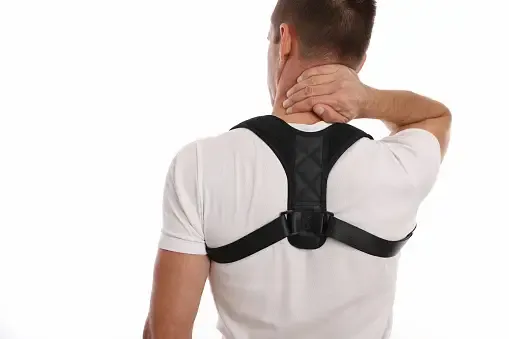john@lee-mat.com
+86-13510662576

GET QUOTE
Can Shoulder Brace Prevent Dislocation?
In our daily lives, our shoulders often bear the brunt of stress and strain. Whether you're an avid gym-goer, a weekend warrior on the sports field, or just dealing with the demands of a nine-to-five job, the risk of shoulder dislocation is always present. It's a painful experience that can disrupt your routine and affect your overall well-being. But what if there was a simple solution? Can a shoulder brace really prevent shoulder dislocation?
What is Shoulder Dislocation?
Shoulder dislocations come in two forms. A partial dislocation, known as subluxation, happens when the arm bone's head (humerus) is partly out of the shoulder bone (scapula). On the other hand, a complete dislocation occurs when the humerus head is entirely out of the scapula. These dislocations can be categorized as anterior (forward, occurring in 98% of cases), posterior (backward, happening in 2% of cases), or inferior (downward, which is rare).
Causes of Shoulder Dislocation
The primary reason for a first-time shoulder dislocation is often a sudden, forceful impact, a sharp twisting motion, or a fall with an outstretched arm, constituting around 95% of such incidents. The remaining 5% are non-traumatic and result from minor actions like raising an arm or adopting a specific sleeping position. Those experiencing non-traumatic dislocations typically have irregularities in their shoulder's muscle and connective tissue. Symptoms include visible misalignment, severe shoulder pain, swelling or bruising, joint immobility, and potential sensations of numbness, tingling, or weakness in the arm or neck, often accompanied by muscle spasms due to pain.
The Role of Shoulder Braces
Enter the shoulder brace—a seemingly straightforward accessory that has gained popularity for its potential to provide support and stability to the shoulder joint. These braces are designed to limit excessive movement and keep the shoulder in a secure position. But can they really prevent dislocations?
The Supportive Evidence
Studies have shown that shoulder braces can indeed be beneficial in preventing dislocations, particularly in individuals prone to recurrent shoulder instability. The brace works by restricting the range of motion, reducing the likelihood of the shoulder joint slipping out of place. For those recovering from a dislocation, wearing a shoulder brace can also aid in the healing process by providing additional support during rehabilitation exercises.
How to Choose the Right Shoulder Brace
1. Consider Your Activity Level
If you're active in sports or engage in strenuous activities, opt for a brace designed for high-impact use. For everyday support, a less rigid brace may be suitable.
2. Focus on Fit
Ensure the brace fits snugly without causing discomfort. Look for adjustable straps to customize the level of support.
3. Choose the Right Type
Different braces cater to various shoulder issues, so select one that suits your specific needs. Consult with a healthcare professional for personalized advice.
4. Check for Breathability
If you plan to wear the brace for extended periods, choose a breathable material to prevent discomfort and sweating.
5. Evaluate Ease of Use
Opt for a brace that is easy to put on and take off, especially if you'll be using it frequently.
6. Assess Comfort
Consider any additional padding or cushioning for comfort, especially if you'll be wearing the brace for long durations.
7. Review Customer Feedback
Read reviews from others who have similar shoulder concerns to gauge the effectiveness of the brace.
8. Consult a Professional
Seek advice from a healthcare professional or physical therapist to ensure the chosen brace aligns with your specific condition and requirements.
Incorporating a Shoulder Brace into Your Routine
If you're considering using a shoulder brace as a preventive measure, it's essential to incorporate it into your routine effectively. Wear it during activities that pose a higher risk of shoulder injury, such as weightlifting, contact sports, or repetitive overhead motions. However, it's equally important not to become overly reliant on the brace, as maintaining shoulder strength through targeted exercises remains crucial.
Conclusion
In conclusion, a shoulder brace can play a significant role in preventing shoulder dislocations, offering support and stability to the vulnerable joint. While it's not a foolproof solution and should be used in conjunction with other preventive measures, the right shoulder brace can be a valuable addition to your toolkit for maintaining shoulder health.

